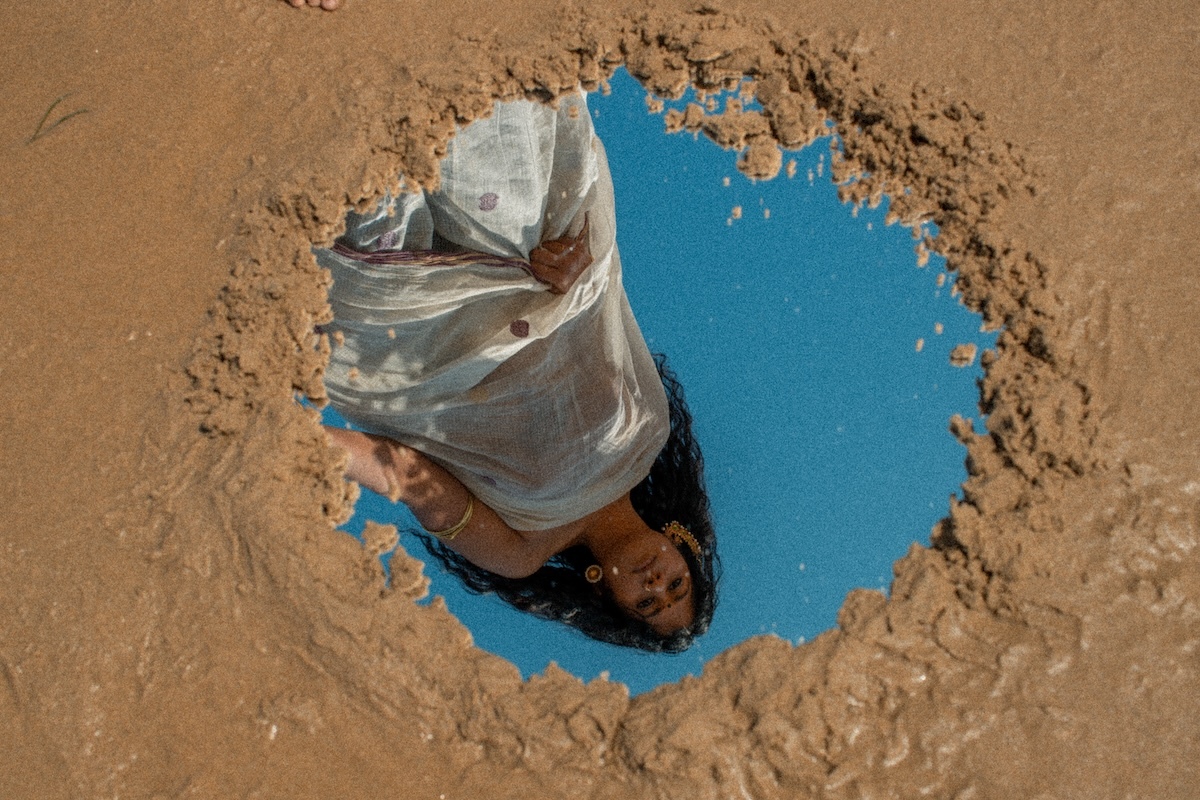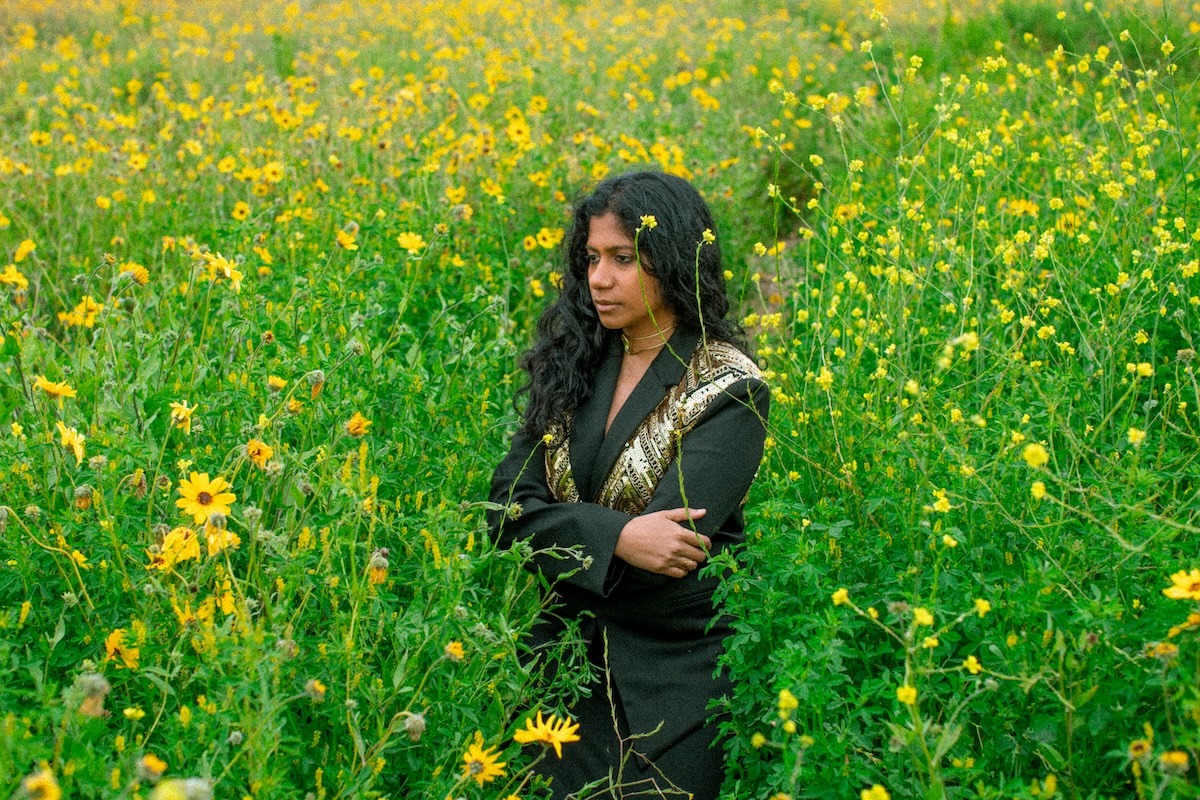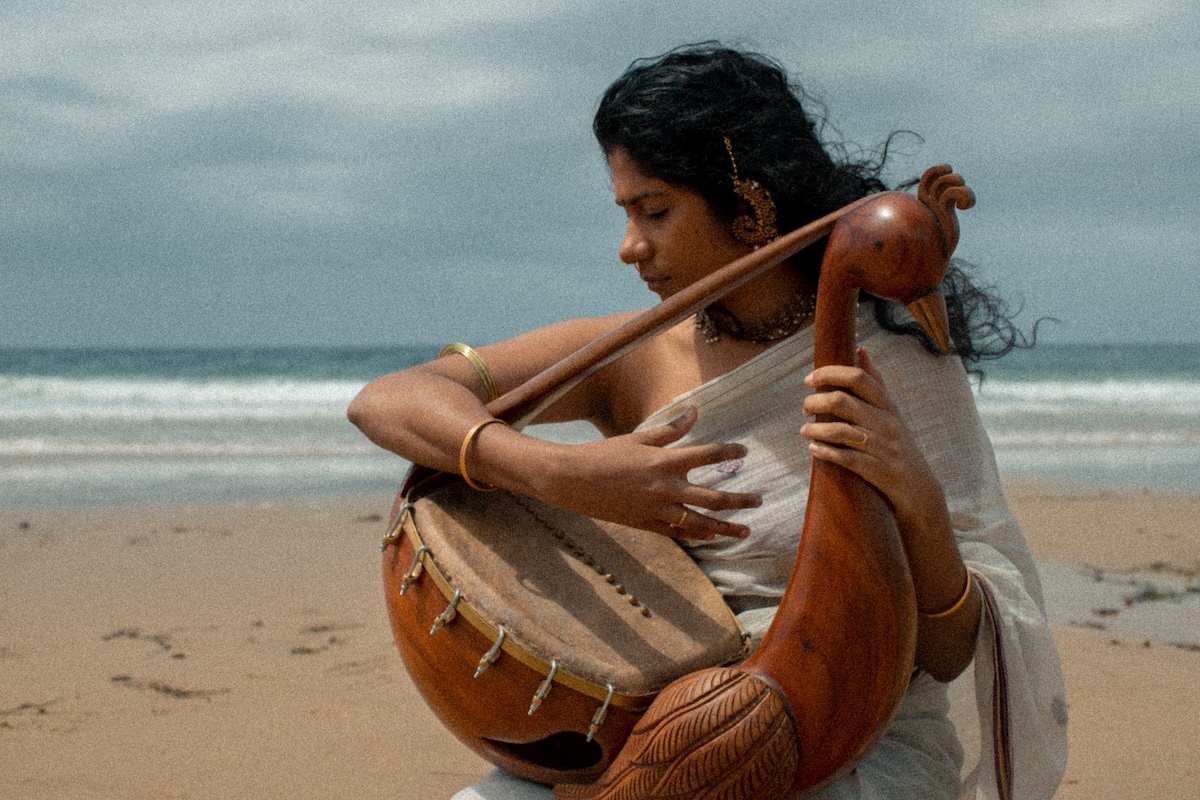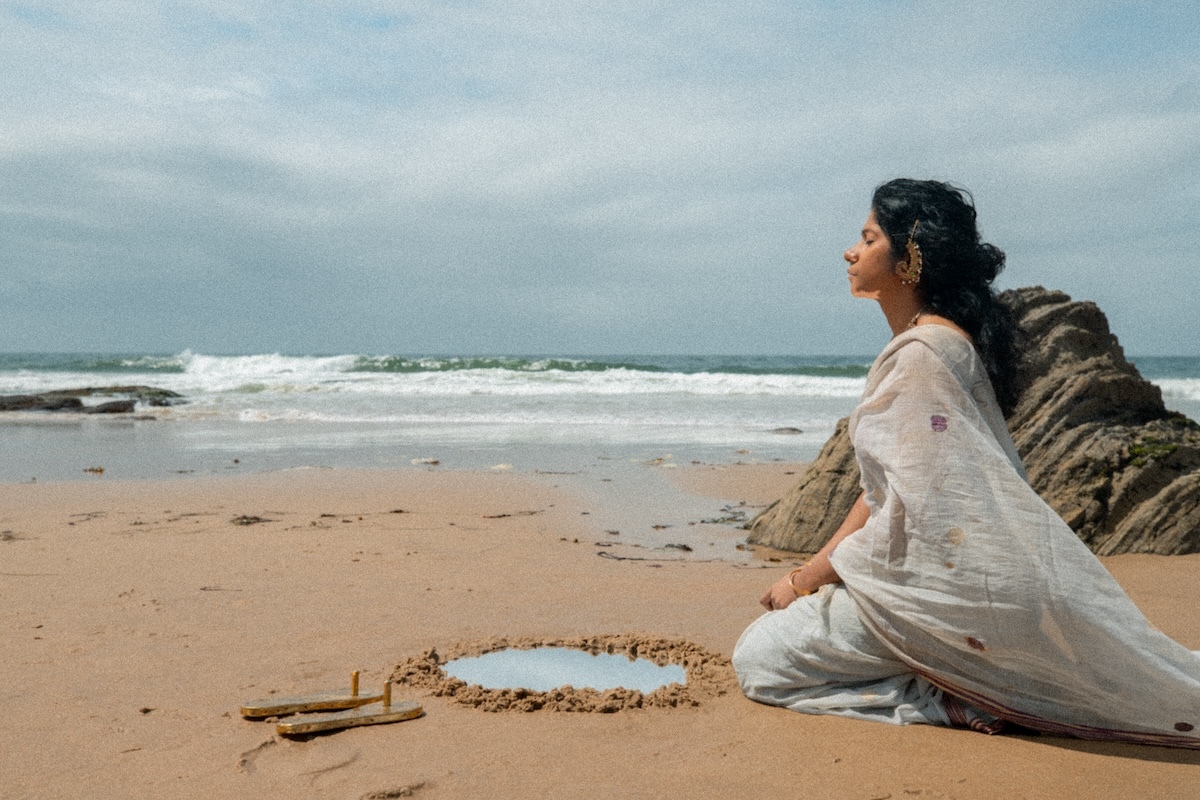South-Asian vocalist, multi-instrumentalist and composer ganavya has been hailed as “among modern music's most compelling vocalists” by The Wall Street Journal, making a name for herself as an in-demand artist who consistently confounds expectations. Tamil Nadu-raised and New York-born, hers is a deeply profound and – for mainstream music fans at least – a unique, ethereal voice. In this Emerging Headliner interview powered by JBL, Ganavya reflects on her spiritual upbringing and how embracing practices instilled in her as a child inspired her new album, like the sky, i've been too quiet.
“Among many of us in the diaspora, there's this urge that we have to show how unique we are,” ganavya acknowledges dreamily from her home in Irvine, California. A deep thinking, spiritual wordsmith to her core, every sentence uttered sounds as if plucked from the most exquisite poetry. In her soothing, almost whispered tones, each word is weaved into an irresistible and elaborate storyteller's tapestry.
“My life is a little split right now,” she shares. “This past year has been one of living in between places. My roots have been in a cup of water instead of soil.”
Back to her mesmerising, unique vocal prowess: ganavya’s voice conveys a myriad of emotions, hypnotically and seemingly effortlessly traversing ethereal highs to resonant lows.
“Children of the diaspora have been taught that we have to be a certain amount of ‘unique’ to survive or stand out in this world,” she explains of her nomadic upbringing, (having moved between New York, Florida and Southern India). “We have to be special. In one way, my path is unique, and in another way, it's the same that hundreds of people have walked,” she contemplates.
Born into a family deeply rooted in the Carnatic tradition of South Indian classical music – “I do struggle with the word ‘classical’; anything that has the word ‘class’ in it is telling you there's some kind of problem” – ganavya's musical journey began at a young age. Immersed in the rich melodic and rhythmic tapestry of Carnatic music, as a young girl she honed her skills under the guidance of eminent gurus, mastering vocal techniques and intricate compositions.
“I trained in Carnatic music,” she nods, using the background noise in her apartment during the interview as an example: “I can hear two separate planes that are running; there's one car, there's a fridge motor and a small fan that I can hear from one story below. The bathroom on the left side also has a small fan, and even though I don't have perfect pitch, all the notes are forming a song in my head. The ability to relate very quickly to the intervals is something that Carnatic music and that my mother and my grandmothers have taught me.
"In the same way, every single time I hear a note, I hear it in my heart all the time, incessantly, and that is because of Carnatic music. I hesitate to use the word ‘virtuosity’ – because it feels a little bit like peacocking – I'm not really interested in having to prove some kind of technical mastery to earn someone's respect. I just mean in the simplest form: you're a kid, you wake up every morning and you go to class. It's just a muscle that's practised.”






